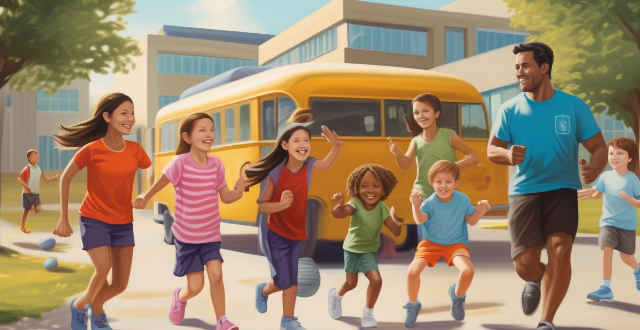Overtraining in sports can lead to physical injuries, psychological stress, and hindered social interaction in children. It is important to ensure a balanced approach to sports participation, emphasizing rest, proper training techniques, and mental health support.

Can Excessive Sports Participation Harm a Child's Physical Development?
Introduction
Participating in sports is often seen as beneficial for children's physical and mental development. However, the question arises: can excessive sports participation harm a child's physical development? In this discussion, we will explore the potential risks associated with overtraining and how it can impact a child's growth and overall health.
Understanding Excessive Sports Participation
*Definition of Excessive Sports Participation*
Excessive sports participation refers to the practice of engaging in high-intensity training or competition without adequate rest and recovery time. This can include long hours of practice, multiple sports commitments, and year-round involvement in competitive activities.
*Signs of Overtraining in Children*
- Chronic fatigue and exhaustion
- Decreased performance in sports
- Frequent injuries or illnesses
- Changes in mood or behavior
- Difficulty concentrating in school or other activities
Risks Associated with Excessive Sports Participation
*Physical Risks*
- Overuse Injuries: Repetitive stress on growing bones, muscles, and joints can lead to conditions such as Osgood-Schlatter disease, Sever's disease, and stress fractures.
- Growth Plate Injuries: Young athletes are at risk of damage to their growth plates due to excessive force and repetitive motion.
- Burnout and Overtraining Syndrome: Continuous high-level training can result in burnout, characterized by emotional exhaustion, reduced motivation, and decreased athletic performance.
*Psychological Risks*
- Pressure and Stress: The pressure to perform well, especially in competitive environments, can lead to anxiety and stress.
- Reduced Social Interaction: Spending excessive time on sports can limit opportunities for social interaction with peers outside of sports.
- Identity Issues: Children may begin to define themselves solely by their athletic abilities, which can be problematic if they experience setbacks or choose to pursue other interests.
Preventing Harm from Excessive Sports Participation
*Guidelines for Safe Sports Participation*
1. Balance: Encourage children to participate in a variety of activities rather than focusing exclusively on one sport.
2. Rest and Recovery: Make sure that children have adequate time for rest and recovery between practices and competitions.
3. Proper Training Techniques: Emphasize proper technique and gradual progression in training intensity to reduce the risk of injury.
4. Nutrition and Hydration: Ensure that children maintain proper nutrition and stay hydrated to support their physical demands.
5. Mental Health Support: Provide emotional support and encourage open communication about any stress or pressure they may feel related to their sports participation.
6. Regular Health Check-ups: Schedule regular check-ups with healthcare providers to monitor a child's physical development and address any concerns early on.
7. Educational Priorities: Ensure that academic responsibilities are not neglected due to sports commitments.
8. Enjoyment: Foster an environment where enjoyment of the sport is prioritized over winning or external pressures.
Conclusion
While sports can offer numerous benefits for children's physical development, it is essential to recognize that excessive participation carries its own set of risks. By promoting balanced involvement, prioritizing rest and recovery, and monitoring both physical and psychological well-being, parents, coaches, and healthcare professionals can help mitigate these risks and ensure that children derive positive outcomes from their sports experiences.